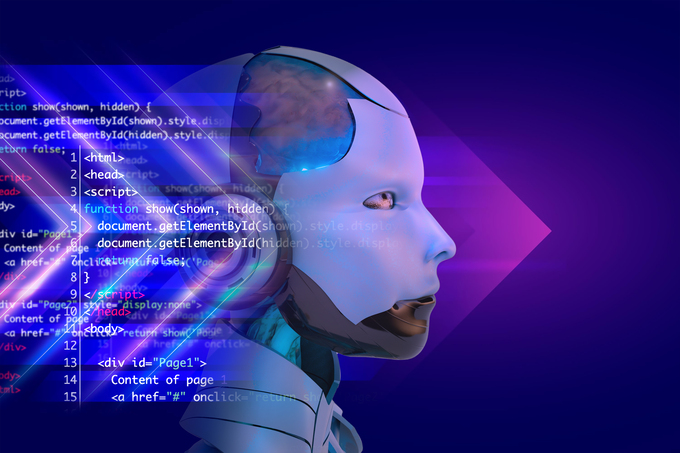Understanding Coding Assistance Tools
Encoding assistance tools have transformed the way developers approach their work. These AI-driven solutions aim to reduce repetitive tasks and enhance coding efficiency. At their core, these tools analyze vast amounts of code data. They generate suggestions based on context, helping programmers write faster and more effectively. Coding assistants can adapt to your needs. They can help with debugging or creating new features. These technologies leverage machine learning algorithms to improve over time. They learn from user interactions.
They become better at providing support that matches users coding styles. Some tools can now understand plain English queries. This is thanks to natural language processing. This lets developers ask about syntax or best practices. They wont have to sift through endless documentation. GitHub Copilot also makes programming less daunting for both novices and veterans.How do AI tools like GitHub Copilot or ChatGPT help developers with coding tasks?
AI tools like GitHub Copilot vs ChatGPT are great for developers. They help with coding tasks. They streamline workflows. Their real-time suggestions can greatly speed up development. With context-aware capabilities, these tools analyze existing code and provide relevant solutions. This reduces the time spent searching for documentation or debugging issues. They help in learning by example.
Smart prompts can help developers learn coding patterns. They can explore different large language models or frameworks. Error detection is another vital aspect where AI shines. These tools find common mistakes before runtime. They foster cleaner code from the start. Both platforms boost productivity and creativity in problem-solving. They generate boilerplate code and answer tough algorithm questions to do this. The debate of Codium vs Copilot continues as both offer valuable insights to coding endeavors.What are the benefits of using AI coding assistants in software development?
AI coding assistants bring a wealth of advantages to software development. They can significantly speed up the coding project process by automating repetitive tasks. This allows developers to focus on more complex problems that require critical thinking. These tools also enhance code quality.
AI assistants often suggest best practices. They flag potential errors before they become issues. This reduces debugging time later in the project. Collaboration is another area where these tools shine. They can help teams keep a consistent code style, easing merges and reviews. chatgpt stands out by offering an additional layer of collaboration, it can be used to brainstorm, discuss ideas, and even generate documentation together.
Learning opportunities abound with AI assistants. Programmers can use these tools at work to learn new coding skills. Accessibility is key. It helps even novice programmers. They benefit from support as they tackle tough projects. It prevents them from feeling overwhelmed.
How do developers integrate AI tools like ChatGPT and GitHub Copilot into their coding workflow?
It can be easy to integrate AI like ChatGPT and Git-Hub Copilot into a developers workflow. Programmers often start by installing these tools as IDE extensions. This allows for real-time suggestions while writing code. Many programmers use GitHub Copilot to generate code from their comments. It can create entire functions or code snippets. Github copilot is designed to anticipate needs, making coding faster.ChatGPT, excels at debugging and explaining complex ideas. Programmers might copy-paste error messages into ChatGPT. They want quick feedback or solutions. This can save time and reduce frustration. Collaboration is another key aspect. Teams can use both tools during pair programming. This will help discuss code quality and best practices without interrupting the workflow.

Comparing ChatGPT and GitHub Copilot
When it comes to coding assistance, ChatGPT and Git-Hub Copilot offer distinct approaches. ChatGPT excels in natural language processing. It lets programmers ask complex questions about programming. They get answers to tough topics. GitHub Copilot acts as a pair of intelligent eyes within your IDE. It suggests code snippets based on context. It can even complete functions with minimal input from the programmer. This real-time collaboration enhances productivity significantly. ChatGPT gives detailed discussions and clarifications. GitHub Copilot, developed by GitHub and OpenAi, aims for quick coding solutions for specific tasks. Each tool has unique features for different software development tasks. Programmers might prefer one over the other, based on their workflow. Some want a chat for guidance.
What are the key features of ChatGPT for software development?
ChatGPT brings a fresh perspective to software development. It suggests code to encode files. It also generates boilerplate code quickly. This saves programmers time. Users appreciate its ability to answer coding questions in real-time. This interactive approach makes problem-solving more efficient during the development process.
1. Versatility across programming languages: ChatGPT can be used with various programming languages, including Python, JavaScript, and Ruby. 2. Adaptation to syntax and frameworks: It can adjust its behavior to work effectively with the unique syntax and frameworks of each language.The tool excels at providing explanations for complex concepts. Programmers often need help with topics. ChatGPT gives concise, thorough answers. Its conversational interface also allows for iterative dialogue. Programmers can refine their inquiries and dive deeper into challenges, without losing context. This support makes ChatGPT a great partner for coders. It helps them improve their workflow.
How does GitHub Copilot differ from ChatGPT in assisting developers?
GitHub Copilot and ChatGPT serve distinct purposes in the realm of coding help. While both leverage AI, their focus areas differ significantly. Copilot is tailored specifically for code generation. It works with popular IDEs like Visual Studio Code. It gives real-time suggestions as programmers type. Its strength is in predicting and completing code. It uses context from existing projects. ChatGPT, on the other hand, excels at conversational interactions. It can explain code concepts, provide debugging assistance, and even generate code snippets. The rivalry between these two tools reflects the evolving landscape of top LLMs for code generation.Programmers can talk about programming concepts or clarify complex topics. Its better for brainstorming or discussing algorithms than for coding. The recommendation style also varies between the two tools. Copilot offers concise snippets for the project at hand. ChatGPT gives broader insights to shape a developers understanding over time. This makes each tool valuable depending on specific needs during development sessions.
What are the pros and cons of Copilot for software projects?
GitHub Copilot offers impressive advantages for software projects. It can suggest code snippets in real-time. This can speed up development. Programmers are often more productive. They focus on design and GitHub Copilot use for routine coding. There are some drawbacks to consider.
| Aspect | Pros | Cons |
|---|---|---|
| Productivity | Significantly boosts developer productivity by automating encode suggestions. | May lead to over-reliance, reducing developers' deep understanding of the code. |
| Code Generation | Offers smart, context-aware code completions and snippets that are often very relevant to the task at hand. | Sometimes suggests incorrect or irrelevant code, requiring manual review. |
| Speed | Saves time on repetitive coding tasks, speeding up development, especially for routine functions. | Initial setup and familiarization might slow down work temporarily. |
| Code Quality | Can help developers write clean, well-structured code by suggesting widely adopted patterns and practices. | Quality of generated code may vary, and it sometimes lacks best practices, especially for security. |
The tool can generate irrelevant or incorrect encode suggestions. This can cause confusion and waste time on debugging. This unpredictability may frustrate programmers who rely heavily on its outputs. Another issue is the tools reliance on existing code. It might struggle with unique programming challenges.
Over-reliance on Copilot could hinder a developers growth. It may stifle their problem-solving skills. It is vital to weigh the pros and cons of using GitHub Copilot chat in software projects. Each team must test how it fits within their workflow and goals.

Functionality and Performance
GitHub Copilot is great at giving context-aware encode suggestions. This tool thrives on understanding the surrounding code. It generates relevant snippets to save time during development. ChatGPT, offers broader conversational capabilities. Its strength lies in providing explanations and tackling complex coding concepts. Programmers often turn to it for insights rather than direct code generation. Performance varies based on user expectations. Copilot excels at filling in boilerplate code or automating repetitive tasks efficiently. Yet, it may falter when facing unconventional encoding styles or less common languages. ChatGPT adapts well to various programming styles. But, it may need more back-and-forth for specific outputs. Each tool has a unique approach. It caters to different software development needs.
How well do GitHub Copilot and ChatGPT understand different coding styles?
GitHub Copilot excels at recognizing encoding styles. Github Copilot is trained on many open-source projects. It can adapt to standard conventions, like naming variables or structuring functions. This makes it intuitive for programmers who use established patterns.
ChatGPT takes a slightly different approach. It can understand code snippets and suggest, contextually. But, its strength is in natural language interaction, not in code generation. Programmers may need to explain their style preferences more when using ChatGPT. ChatGPT is more versatile, each tool has strengths that cater to specific needs. For example, it can help find a create react app alternative or explore different code libraries.Programmers with rigid coding standards might prefer Copilot for its consistency. Those wanting broader guidance with code might prefer ChatGPTs chat.
What coding tasks are better suited for ChatGPT versus GitHub Copilot?
ChatGPT shines when it comes to generating explanations or documentation. If you need clear descriptions of complex algorithms, ChatGPT can help. It can explain ideas in an easy-to-understand way. For brainstorming ideas and tackling high-level design questions, this AI is invaluable. It enables programmers to explore various approaches without getting bogged down by syntax.
GitHub Copilot is great at code completion and real-time suggestions as you type. Its especially good for repetitive tasks, like writing boilerplate code and standard functions. When debugging, Copilot can suggest corrections based on context and prior coding patterns. Its integration within IDEs makes it a seamless companion during active development sessions.

Integration and User Experience
User experience with AI coding assistants can vary. It depends on how well they are integrated into development coding environments. GitHub Copilot works with platforms like Visual Studio Code. It gives real-time coding suggestions as programmers type. This tight coupling lets users get instant feedback and code snippets. It wont disrupt their workflow. ChatGPT is great at explaining and providing context for code. But, it often needs more manual input. Programmers may need to switch apps or tabs to find insights. The interface of each tool also plays a role in usability. Many programmers find Copilots inline help natural. It boosts productivity as they work in their favorite editor.
ChatGPTs chatty style may appeal to those wanting deeper insights. They seek collaboration, not quick fixes. Each tool offers unique advantages that cater to different programmer needs and preferences.
How user-friendly are ChatGPT and GitHub Copilot in an integrated development environment?
User-friendliness is key for any development tool. Both ChatGPT and Git-Hub Copilot aim to simplify coding. ChatGPT fits seamlessly into various IDEs. It lets programmers chat in natural language. This feature enables quick clarifications or suggestions without interrupting workflow. GitHub Copilot integrates seamlessly into popular editors such as VS Code. It offers inline encode suggestions as you type. This seamless interaction helps maintain focus and enhances productivity. Both tools must minimal setup, making them accessible even for those less tech-savvy.
Some users prefer ChatGPTs chatty style for broad queries. Others like Copilots coding help during intense coding sessions. It is more aware of the context. Each tool caters to different aspects of user needs in an integrated environment. For instance, Git-Hub Copilot, by Git-Hub and OpenAI, excels at giving encode suggestions. It uses the current projects context and the users coding style. It can also generate code from GitHub repositories. This makes it more comprehensive and valuable.What are the major differences in the coding suggestions provided by the two tools?
When it comes to coding suggestions, ChatGPT and Git-Hub Copilot adopt distinct approaches. ChatGPT excels at giving detailed explanations. It can also generate code from prompts. This makes it ideal for understanding programming concepts or troubleshooting issues.
ChatGPT might suggest more creative solutions due to its expansive training data. In contrast, Copilots recommendations are often based on existing repositories. They give programmers a view inspired by those repositories. Each tool has strengths for different needs. Use one for deep insights, the other for quick coding help in development sessions. These differences can help programmers choose the best AI assistant for their workflow. The growth of AI-powered code assistants also leads to interesting questions about the future of code repositories like GitHub and its potential github competitors.GitHub Copilot focuses on real-time autocompletion within your IDE. It analyzes the current file. It offers relevant snippets that match what youre writing. This streamlines the coding process. To get the most out of Copilot, use Copilot within a dedicated code editor or IDE that is compatible with it. You can enjoy its context-aware suggestions. They seamlessly integrate into your workflow.
How do developers perceive the overall usability of ChatGPT versus GitHub Copilot?
Usability varies for developers with both ChatGPT and Git-Hub Copilot. Many appreciate GitHub Copilots intuitive nature. Its seamless integration into popular code editors, especially Visual Studio Code, is praised. Coding suggestions within the editor, often generated by code generated by chatgpt, speed up development tasks. Users often find ChatGPTs conversational approach refreshing. It allows a more interactive experience. Programmers can ask questions. They can get detailed help with complex issues, beyond code snippets. This feature is especially valuable for those who prefer learning as they go, unlike github copilot.Some developers may struggle with the tools specific responses at times, per feedback. Copilot is great at providing direct coding solutions. It may not get context-driven requests as well as ChatGPT in wider programming talks. Both tools bring unique strengths to the table.

